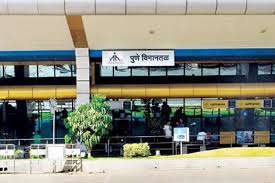 Pune, Jan 24: A 38-year-old animation professional, who claimed that he had paced bombs at the Pune railway station, city airport and on a Mumbai-bound flight from Bhubaneshwar, was arrested on Saturday.
Pune, Jan 24: A 38-year-old animation professional, who claimed that he had paced bombs at the Pune railway station, city airport and on a Mumbai-bound flight from Bhubaneshwar, was arrested on Saturday.
Sanjeev Mishra, who hails from Odisha, was apprehended in a joint operation by the Pune Anti Terror Squad (ATS) and Government Railway Police (GRP), said GRP police inspector Abhay Parmar.
His calls forced the airport authorities to make an emergency landing of GoAir’s Bhubaneshwar-Mumbai flight this morning, they said.
“The accused had called Pune police control room in the wee hours today and said he has planted bombs at Pune railway station and Pune airport. The control room immediately alerted ATS and GRP. However, nothing suspicious was found at both the places,” he said.
According to the officer, the GRP later called up the accused on his phone who told them that they were a group of terrorists who have infiltrated in the country through Kashmir and claimed to have planted bombs at various places like Mumbai, Pune and other cities.

















Comments
HE WIL BE RELEASED SOON BEC HE IS NOT MUSLIM......
AND HE IS SUFFING FROM METALITY PROBLEM AND ALL
THIS IS INDIA......
He will be freed on bail soon confirming that he is mentally sick. lol..
i wonder if this will be on the headlines on other national channels.
There are many instances done previously by these cheddi criminals who blame others. I hope the police doesnt follow cheddis threats to release him as innocent or mentally ill.
He is mentally ill...and is not muslim...
Add new comment